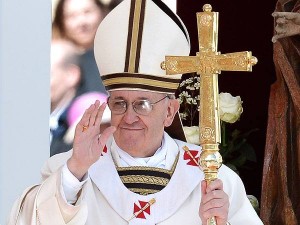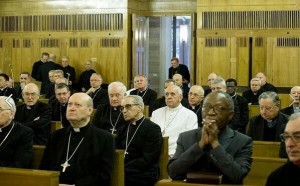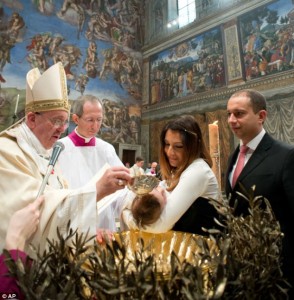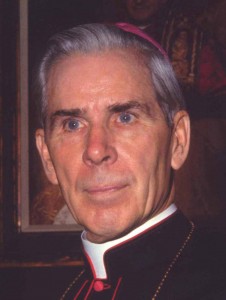Today’s Angelus Address of the Pope gave a wonderful reminder of how you live your spiritual life –or not. This Pope is good for telling us that the devil is lurking, tempting humanity and trying to compromise our faithfulness to God. In my experience I am happy that Francis is pointing out that we need to be careful not try to overpower the enticements of the Evil One. He’s not to be fooled with; pay attention to the Holy Father.
The Gospel of the first Sunday of Lent each year presents the story of Jesus’ temptations, when the Holy Spirit, having descended upon Him after His baptism in the Jordan, urged Him to openly confront Satan in the wilderness for forty days, before beginning His public mission.
The tempter tries to divert Jesus from the Father’s plan, that is, from the path of sacrifice, of love that offers itself in expiation; to make Him take an easy road, [a road] of success and power. The duel between Jesus and Satan is takes place with quotations from the Holy Scriptures. The devil, in fact, to divert Jesus from the way of the Cross, makes present to him the false messianic hopes: economic well-being, indicated by the ability to turn stones into bread; a spectacular and miraculous style, with the idea of casting Himself down from the highest point of the Temple of Jerusalem and being saved by angels; and finally the shortcut of power and domination, in exchange for an act of worship to Satan. There are three groups of temptations. We also know them well.
Jesus decisively rejects all these temptations and reaffirms [His] firm intention to follow the path established by the Father, without any compromise with sin or with the logic of the world. Note well how Jesus responds: He doesn’t dialogue with Satan, as Eve did in the terrestrial Paradise. Jesus knows well that one can’t dialogue with Satan, because he is so cunning. For this reason, instead of dialoguing, as Eve did, Jesus chooses to take refuge in the Word of God and to respond with the power of this Word. Let us remind ourselves of this in the moment of temptation, of our temptation: not arguing with Satan, but defending ourselves with the Word of God. And this will save us. In His responses to Satan, the Lord — using the Word of God — reminds us, first, that “one does not live on bread alone, but on every word that comes forth from the mouth of God” (Mt 4:4; cf. Dt 8:3), and this gives us strength, sustains us in the fight against the worldly mentality that lowers human beings to the level of their basic needs, causing them to lose the hunger for what is true, good, and beautiful, the hunger for God and His love. He also recalls, “Again it is written, ‘You shall not put the Lord, your God, to the test.’” ( v. 7) , because the road of faith also passes through darkness, doubt, and is nourished by patience and persevering expectation. Jesus notes, finally, that “it is written: ‘The Lord, your God, shall you worship and him alone shall you serve,’” that is, we must get rid of idols, of vanities, and build our lives on the essentials.
These words of Jesus will then find concrete responses in His actions. His absolute fidelity to the Father’s plan of love will lead Him, after about three years, to the final confrontation with the “prince of this world” (Jn 16:11), in the hour of the Passion and of the Cross, and there Jesus will achieve His final victory, the victory of love!
Dear brothers and sisters, Lent is a favorable opportunity for all of us to make a journey of conversion, sincerely confronting ourselves with this page of the Gospel. We renew the promises of our Baptism: we renounce Satan and all his works and seductions — because he is a seducer, right? — in order to walk the paths of God and “to arrive at Easter in the joy of the Holy Spirit” (cf. Collect of the First Sunday of Lent, Year A).
 V. Let us pray for Francis, the Pope.
V. Let us pray for Francis, the Pope.




